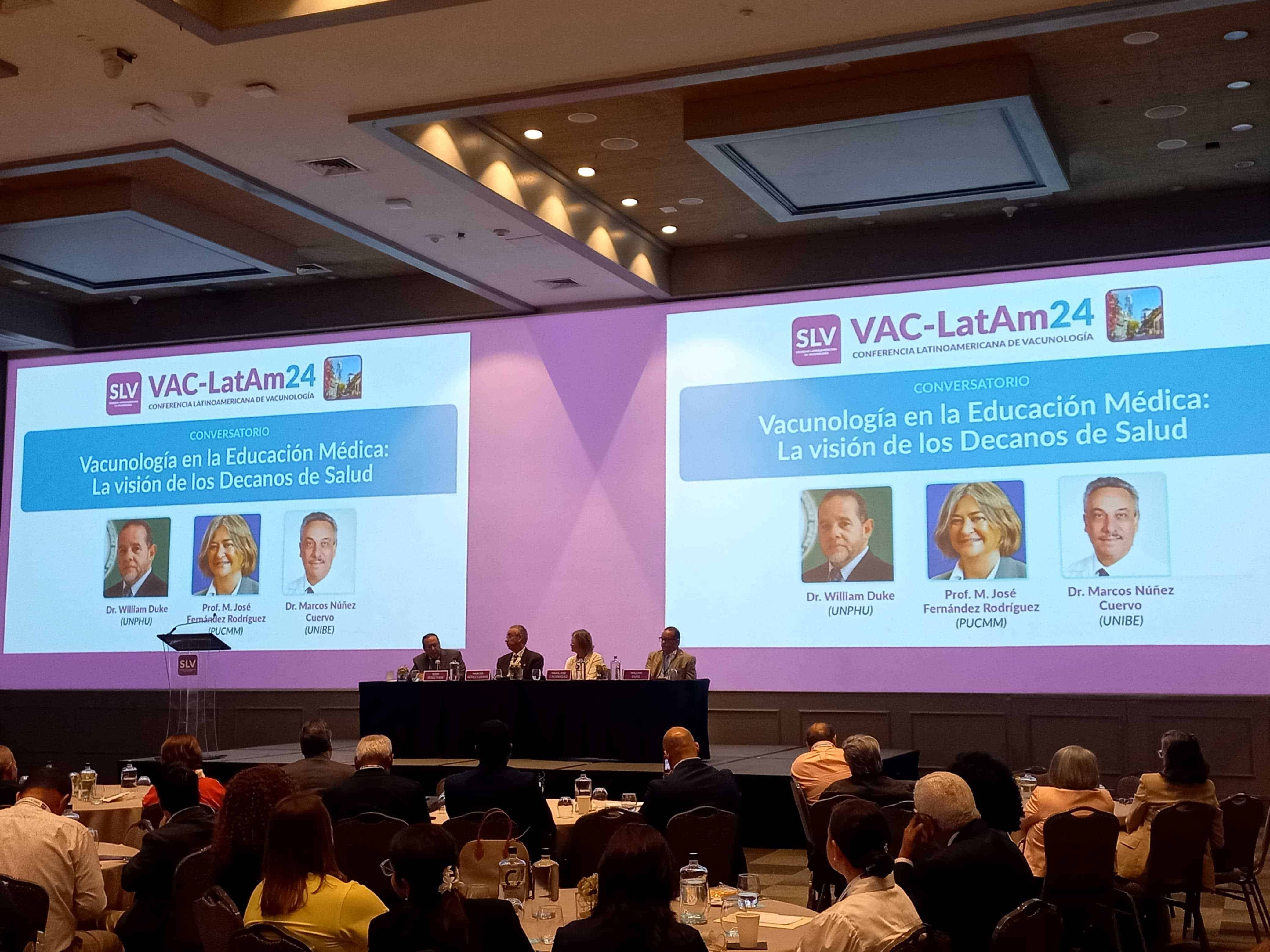
The pandemic for him COVID-19 revealed that the circulation of fake news in social networks (fake newyes) and the lack of scientific evidence in the face of a population eager for answers were the fundamental bases for encouraging conspiracy theories against the vaccines.
During the development of the panel “Vaccinology in medical education”, within the framework of the first Latin American Conference of Vaccinologyits moderator, Eddy Pérez Then, spoke of two key terms that took over the campaign vaccination: “infodemic“e”infoxication“.
In his report “Understanding the infodemic and the disinformation in the fight against COVID-19“, the World Health Organization (WHO) defines the infodemic as “an excessive amount of information (sometimes correct, sometimes not) that makes it difficult for people to find reliable sources and trustworthy guidance when they need it.”
“In this situation, the disinformation and rumors, along with the manipulation of information with dubious intentions. In the information age, this phenomenon is amplified by social networksspreading further and faster, like a virus,” the document adds.
Meanwhile, the infoxication refers to the excess of information that we receive daily since the arrival and massification of the internet and social networksresulting in an overload that overwhelms, tires and leads to problems that can even affect mental health.
“This situation has led to the emergence of diseases that were under control,” Pérez said about the seriousness of patients not keeping their records up to date. vaccination schedules protected by distrust of biological.
The doctor indicated that myths are only counteracted with continuing education and presentation of studies with scientific endorsement about the benefits of vaccines to prevent diseases and reduce mortality.
The advisor of Ministry of Health remembered that the vaccines have a high cost-effective surrender: “for every dollar spent, 54 dollars in health are recovered.” The programs immunizations They have prevented 154 million deaths in the last 50 years.
Opponents are not new

“The opposition to the vaccination was not new,” said María José Fernández, dean of the Faculty of Health Sciences at the Pontificia Universidad Católica Madre y Maestra (Pucmm) and participant in the panel.
According to Fernández, it is a topic that has been debated for decades and not even research on Human Immunodeficiency Virus (HIV) generated so much collective interest, simply because “there was no social networks“.
“The basis of this is misinformation and the disinformation“said José Brea del Castillo, president of the Latin American Society of Vaccinology.
“There are people who make a lot of noise, anti vaccines. It is already a problem of Anthropology, of Sociology, of Pathology, that will never change. Everyone has the right to doubt something, and when in doubt, we must explain“he commented.
“I think that doctors have to informeducate well, and, above all, send messages of the vaccine safety and the value of the vaccines because today we have become people with a greater quality and quantity of life thanks to the vaccine,” Brea added.
The pediatrician also explained that crowds at airports, concerts and all public life would not have been possible without the protection through the years of vaccines.
70% of information false
The president of the Pan American Federation of Associations of Faculties and Schools of Medicine (Fepafem), Marcos Núñez, highlighted that up to 70% of the information posted on the Internet may be false.
Only in the field of medicine 2.5 million articles are published every year, highlighting that the challenge of searching for information lies in the source used. reference.
“Where to filter the information? Where to search and how to search?” are the questions that the user must ask themselves before consuming information.
Núñez called to be very careful with the Artificial intelligence (AI), since it can filter any data without reliable sourceTherefore, he recommends always asking for references when consulting.
In this regard, Brea recalled that “Facebook and YouTube “They had an algorithm that when you asked for something about a vaccine, they gave you two good (links) and the third for something bad that had nothing based on evidence, because that attracted people and they stayed, and that changed, there was a lot of pressure.” .
Great initiative educational
Meanwhile, William Duke, dean of the Faculty of Health Sciences at the Pedro Henríquez Ureña University (Unphu), proposes “a great educational initiative“, which not only includes the healthcare personnel and academic, but community work so that all population groups raise awareness about the benefits of vaccines.
He said that “we must make contributions from the universities, see that scientific rigor is met,” as well as work together with the Ministry of Health and Medical Societies to disseminate correct information.
In the Dominican Republic, the calendar of vaccination It begins with the pregnant woman who receives the vaccine tetanus toxoid and diphtheria. It culminates with the elderly, who receive annually reinforcement against influenza and pneumococcus. Every ten years, you have to apply reinforcement against diphtheria, tetanus and whooping cough.
The Basic Guide to Vaccines, prepared in April 2024 by the Association of Pharmaceutical Representatives, Agents and Producers (Arapf), indicates in its chapter on myths about vaccines what are those generalized beliefs that do not have scientific support.
Among them stands out the one that says that “the diseases that are prevented are already almost eliminated, so vaccines are not necessary.” In response, Arapf indicates that “although vaccine-preventable diseases are rare, the infectious agents that cause them continue to circulate in some parts of the world.”
On whether vaccines carry unknown long-term harmful side effects, the guide states: “Vaccines are safe. You are more likely to get a serious condition from a vaccine-preventable disease than from a vaccine.”
When asked whether vaccines cause autism, Arapf highlights that “so far there is no scientific evidence to support the link of some vaccines, such as those for measles, mumps and rubella, with the autism spectrum. The 1998 study used to support this hypothesis was discarded because it presented serious irregularities.”



